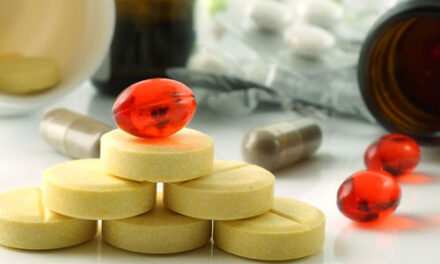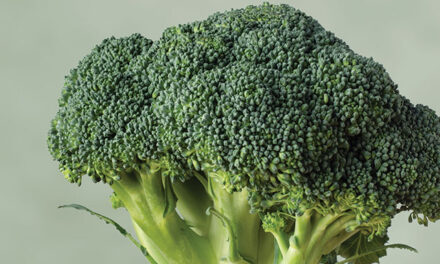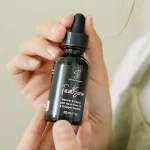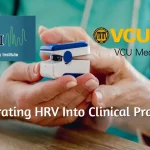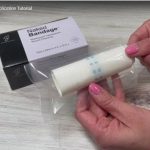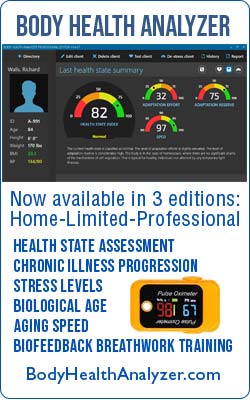Effective, Life Changing Nutrition
We’re a nation of addicts to be sure. Whether it’s coffee, caffeine, sugar, or even the Internet, we’re hooked. But alcohol seems to be everywhere we look. Ordering a drink with dinner or checking out the best happy hour menus in town is the new norm.
In fact, according to the National Institute of Alcohol Abuse and Alcoholism, in 2014, 71 percent of people reported having had a drink during the past year and 56.9 percent during the past month.
But for some, “5 o’clock somewhere” turns into a life-threatening problem and the serious issue of alcoholism presents itself. A truly upsetting statistic from the Center for Disease Control and Prevention found that approximately 88,000 people each year die from excessive alcohol use. That number should be zero.
Alcohol Rehabilitation
Any program focusing on helping people recover from alcoholism and regain their life merits respect. However, many of these programs focus solely on the emotional and psychological aspects of alcoholism. While these are certainly important, it’s missing the sizeable portion of the puzzle that is the biochemical roots of this addictive behavior and providing a true detox—both mentally and physically.
Don’t Trade One Addition For Another
When nutrition is overlooked on the road to recovery, one addiction might be swapped in for the previous. For instance, you could begin to have a soda in place of an alcoholic drink, quickly becoming addicted to caffeine and creating the habit of reaching for a lesser evil—soda—instead of creating new, healthy habits.
In this situation, though you no longer drink alcohol, your body chemistry is still totally out of whack. Cravings for alcohol and the resulting mood swings and depression are likely to remain. In truth, you can claim to have overcome addiction only when you are no longer dependent upon ANY harmful substance.
Real recovery is about nourishing your body, freeing it from dependency upon drugs and other damaging substances— including sugar and caffeine—that can be addictive. The negative mental state that gives rise to chemical dependency is itself brought on largely by nutritional deficiency, which is then deepened with drugs. Drug therapy for drug addiction may mask symptoms, but it doesn’t correct their cause.
Restoring And Recovering
An amazingly effective approach to drug and alcohol rehabilitation centers around, you guessed it—nutrition. Specifically chosen vitamins, minerals, amino acids and herbs, along with a balanced, wholesome diet sets a path to long term recovery.
Coupled with addiction counseling, this is a healing holistic protocol that helps ease withdrawal symptoms and eliminate cravings. Using nutrition as a key to take back charge of your life can help you or a loved one kick the habit, whether the addictive substance is alcohol, nicotine, sugar, caffeine, prescription drugs, heroin or crystal meth.
There are many substances that can help break addiction.
Your Healthy Road
Below are my suggestions for the most effective program. Do note that since there are over ten nutrient suggestions, you may wish to select those that are most appropriate for your condition and symptoms that you exhibit.
High Protein, High Fat Diet
First and foremost, choose a high protein/high fat diet combined with specific amino acids that help to repair nerve synapse damage and provide a natural energy boost. Paleo, ketogenic and Fat Flush, we’re looking at you!
This approach is designed to increase blood and oxygen supply to the brain, stabilize blood sugar, and provide antioxidant protection.
Eliminate all sugars, soft drinks, processed carbs and reduce fruit consumption to two servings of low-fructose fruits per day (like berries).
Daily Exercise
Engage in 30 to 40 minutes daily to properly oxygenate the system with a combination that includes weight-bearing, stretching and cardiovascular activity.
Although I recommend that caffeine in the form of coffee drinking be relegated to one to two cups daily, I do recommend the use of coffee for a coffee enema to detoxify the body. The caffeine in the coffee stimulates the liver and colon and, absorbed into the portal system, coffee can help flush out the bile in the liver, lightening its toxic load.
The same results are not achieved by drinking coffee, due to chemical changes that occur in the stomach. To prepare the enema, boil four heaping tablespoons of ground coffee in two cups of water for ten minutes. Dilute with cold water to make 1½ to 2 quarts, and adjust the temperature as needed. Pour into an enema bag.
Nutrient Supplementation
In addition to a daily multi-vitamin and mineral supplement, also focusing on the following elements will supply the basis for rebuilding an exhausted but over-stimulated body.
Adrenal Extract
Adrenal extract combats adrenal exhaustion caused by drugs, medications, caffeine, and alcohol. This kind of exhaustion is characterized by low blood sugar, fatigue, lethargy, depression, irritability, inability to concentrate, weakness, and poor appetite. I like a product that contains at least 30–100 mg of adrenal cortex.
B Complex
A yeast-free methylated B complex vitamin contains a team that works together to help combat depression, fatigue, and weakness, and to defend the body against the ravages of stress. I like at least 50 mg once or twice per day to help rebuild the nerves.
Dimethylglycine (DMG)
Dimethylglycine (DMG) is an amino acid derivative that improves oxygen utilization at the cellular level, combats fatigue, and increase endurance. Start with 250 to 500 mg daily in the morning.
Gotu Kola
Gotu kola is an herb that has sedative properties. It’s also a tonic herb that can strengthen and energize the brain. Research recommends 50 to 250 mg per day.
L-Cysteine
L-Cysteine, a sulfur-containing amino acid, helps destroy harmful chemicals in the body, such as acetylaldehyde and the free radicals produced by smoking, drinking, and the body’s everyday metabolic processes. It protects the body against the effects of radiation, heavy metals, and other harmful substances. I recommend 600 mg daily.
L-Glutamine
L-Glutamine is the only amino acid substance, other than glucose, that can serve as fuel for the brain. This amino acid helps improve intelligence, fight fatigue and depression, and control cravings for sugar and alcohol. Can be taken between meals as instant brain fuel or before meals for instant energy. I like three grams of L-Glutamine power at least three times per day.
Lecithin
Lecithin is a nutrient derived from non-GMO soy that contains choline from which the neurotransmitter acetylcholine is derived. Acetylcholine is responsible for nerve transmission, and it regulates the activity of the muscles, and is required for memory, appetite, sexual behavior, and the ability to sleep. I suggest two TBSP of powdered lecithin granules per day in smoothies or sprinkled on salads.
Magnesium
Magnesium helps eliminate muscle cramping and twitching. It is known to be a natural tranquilizer and muscle relaxant. I suggest 400 to 1200 mg magnesium per day.
Passionflower
Passiflora (passionflower) is sedative herb. One type of passionflower—Giant Granadilla—has been found to contain serotonin. It helps to calm the body by promoting transmission of subtle nerve impulses, and is useful in combating insomnia, nervous tension, fatigue, and muscle spasms. I suggest 90 mg daily.
Phenylalanine
The amino acid phenylalanine is a precursor of tyrosine. It creates a natural feeling of wellbeing, aids in overcoming depression, increases mental alertness, improves memory, and helps suppress appetite. 500 to 1500 mg three times a day is the ideal amount especially for pain control.
Selenium
The mineral selenium is an antioxidant that protects against free radicals. Its presence is required to activate vitamin E. Take 250 mcg daily.
Tryptophan
Tryptophan helps to offset depression by increasing levels of the neurotransmitter serotonin. It has an anti-anxiety effect and helps combat insomnia. 5HTP is the precursor to tryptophan and 400 mg can be taken once daily before bed.
Tyrosine
Tyrosine is an amino acid that’s derived from phenylalanine, and is involved in the manufacture of adrenaline, noradrenaline, dopamine, and thyroid hormones. It also helps overcome depression, increase mental alertness, and improve memory.
In a cocaine-detoxification program conducted at Columbia University in New York, investigators reported that 75 to 80 percent of those treated with tyrosine were able to stop cocaine use completely or decrease their use by at least 50 percent. I suggest up to 1,000 mg a day.
Vitamin C
Vitamin C is an important antioxidant that offsets free-radical damage and helps preserve the antioxidant nutrient vitamin E. It plays a key role in the production of neurotransmitters in the brain, helps soothe anxiety and insomnia, and supports the adrenal glands. I suggest 3 g of time-released vitamin C daily.
Vitamin E
Vitamin E is a powerful antioxidant that facilitates oxygen utilization, calms the nervous system, and restores function of a damaged liver. The recommended daily dosage is 400 IU.
Keep in mind that one size doesn’t fit all. The bottom line is that it’s imperative that you couple addiction counseling with a healing diet and supplements to restore your body, mind and spirit.


